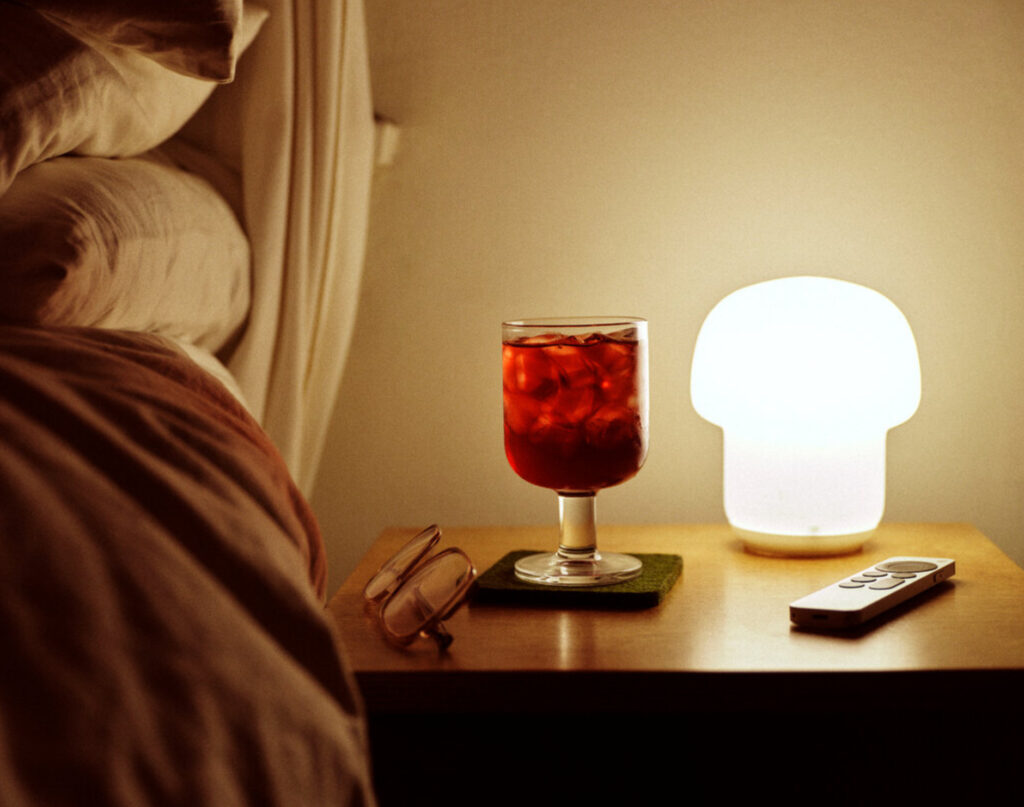From the desk of Dr. Meagan:
Perimenopause brings all sorts of changes, but one of the most frustrating symptoms for many women is the sudden inability to sleep well. As your estrogen and progesterone levels drop, so does your melatonin—the hormone that helps you drift off at night. This creates the perfect storm for sleepless nights.
I’ve had patients tell me they tiptoe out of bed, leaving snoozing spouses, to cry in another room because sleep feels impossible. Sound familiar?
You’re not alone, and more importantly, there are ways to improve your sleep. Lack of rest causes a ripple effect, amplifying other symptoms like mood swings, brain fog, and anxiety. So, it’s key to prioritize sleep, even if it feels harder than ever.
Here are a few tips that can help:
- Create a wind-down routine. I mean it. Try shutting everything down at the same time every night. Screens off, devices silenced. I have even swapped my Kindle for paperback books at night.
- Cool down your bedroom. Set your thermostat lower, close the shades, and try an eye mask. My silk eye mask has been a game-changer, and now, I can’t sleep without it.
- Limit alcohol and caffeine. A glass of wine or two will almost certainly guarantee a night of restless sleep–at least, it always does for me. I typically stop drinking caffeine by 2 pm. I’ve also started skipping my nightly wine Sunday through Thursday. It truly helps.
- Journaling can work wonders. I’m not talking about an epic entry, just empty your thoughts onto the page. When I do, my brain finally quiets, and sleep comes easier.
Give these a try, and let me know how they work for you.
Dr Meagan

Out of my head: Brain fog
Brain fog is a common and frustrating symptom of perimenopause, impacting memory, focus, and overall cognitive clarity. During perimenopause, hormonal fluctuations, particularly a decline in estrogen, can affect the brain’s frontal lobe—the area responsible for higher-level cognitive functions like concentration and decision-making. This disruption often leads to forgetfulness, difficulty focusing, and mental fatigue, much like the foggy feeling we experience after a long, exhausting day.
Research has shown that estrogen plays a key role in maintaining the brain’s communication pathways, which explains why many women in perimenopause experience brain fog as their hormone levels fluctuate. In addition to hormonal changes, other factors such as inflammation, stress, and lack of sleep can exacerbate brain fog. Studies have linked inflammation to cognitive decline, as it impairs the brain’s ability to communicate effectively with the rest of the body, particularly during this transitional phase of life.
Managing brain fog during perimenopause requires a multi-faceted approach. Improving sleep quality (as we discussed earlier), addressing chronic pain, and managing emotional stress can help alleviate symptoms. Cognitive Behavioral Therapy (CBT) has also been found effective in strengthening cognitive function by helping women regulate emotions and reduce anxiety, which often compounds cognitive issues. While brain fog can be frustrating, adopting healthy lifestyle habits and working closely with healthcare providers can help women navigate this challenging symptom more effectively.

Bedtime cocktails for a good night’s sleep? My simple non-trendy secret
The sleepy girl mocktail started trending earlier this year when attempts at Dry January left ladies without their nightly *wind-down wine.* Instead, they were mixing tart cherry juice, magnesium powder, and bubbly water to get ready to catch some zzz’s.
Tart cherry juice has tryptophan, an amino acid that helps the body produce both serotonin and melatonin, and magnesium boosts the production of gamma-aminobutyric acid (GABA). This neurotransmitter promotes relaxation and reduces nerve activity. Hence, sipping this concoction can make you sleepy.
I love this as an occasional remedy for a good night’s sleep, but I’m not a fan of the 33 grams of sugar in one cup of cherry juice. Sugar right before bed isn’t the best idea because it can interrupt sleep cycles. And bubbles…well, they don’t sit well with me.
Although not as *fun* as the sleepy girl mocktail, my go-to, let’s-go-to-bed mocktail is chamomile tea. Chamomile contains an antioxidant called apigenin, which binds to receptors in the brain that reduce anxiety and promote sleep. Its mild sedative effects make it an ideal, calming bedtime beverage–without all the sugar and bubbles.
But the number one, best sleep remedy? It’s the one that works for YOU.
The results are in: Creatine
Recent studies have found that creatine, often known for its use in muscle building, can be highly beneficial for perimenopausal women. As estrogen levels drop during perimenopause, muscle mass and bone density can decrease. Creatine helps maintain muscle strength, supports bone health, and improves cognitive function by increasing energy production in cells.
Experts recommend women take 3 to 5 grams of creatine per day for optimal results. I use creatine daily, and it mixes easily into a smoothie or even water.
Studies suggest that consistent use over time helps in maximizing benefits for both muscle health and overall well-being during this stage of life. Creatine is a great habit to start and keep during perimenopause.